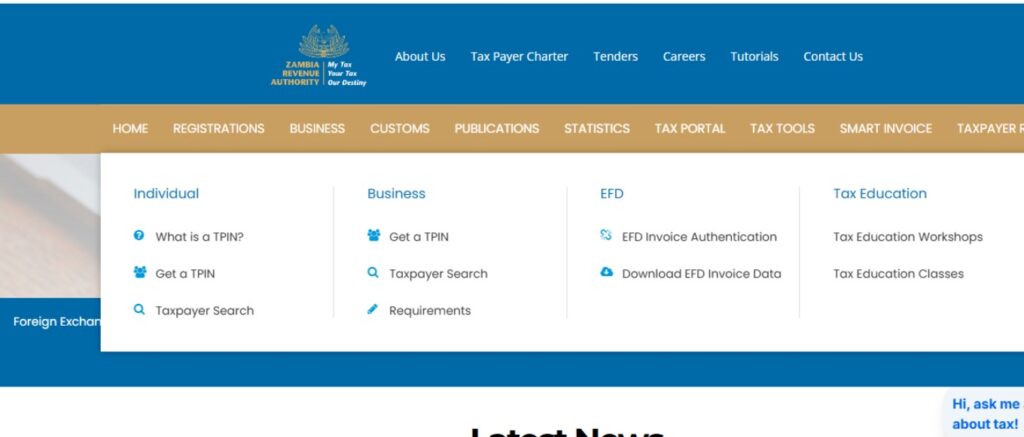It is very common in Zambia to see you as a Zambian carrying out daily business activities without knowing the benefits of registering your business. We will look at the benefits of registering your business and the challenges one may face if his or her business is not registered.
We have covered 8 simple steps to follow when registering your business, hence you are not going to have a tough time doing it. Pacra is a platform which deals with business registration in Zambia. Furthermore, the Business Pacra fees are ever affordable for both local and foreigners.

Benefits of Registering your Business in Zambia
1. Brand Recognition
A registered business in Zambia creates a strong brand identity and builds credibility among customers, suppliers, and potential investors. A good example is Trade Kings, their brand is recognised by more than 70 percent of Zambians.
2. Access to Government Contracts
By registering your business, you qualify to bid for government contracts. All government tenders and opportunities are only available to registered entities. No Zambian Government contract could be awarded to a non registered entity because this could be considered as corruption.
3. Access to Loans and Financing
Financial institutions in Zambia often require businesses to be registered before granting loans or financial aid. This can be vital for business growth and expansion. We have clearly witnessed this upon seeing the procedures which are being taken for accessing Constituency Development Funds (CDF) loans.
As a beneficiary, I could testify that there is no way one could access a CDF loan without a proof of Business/Company Certificate of Registration from PACRA. Business registration is a must have requirement for CDF loan applications.
4. Tax Incentives
Once you register your business, you become eligible for various tax incentives, exemptions, and reductions offered by the Zambian government. In case of any failure to pay tax due to unexpected circumstances, as a business owner you will be able to visit ZRA offices and negotiate with them about your shortfalls.
5. Limited Liability
For businesses registered as limited companies, your personal assets are protected in case the business incurs debts or faces legal action. This provides a buffer against personal financial risk. Insurance companies will also give you a backup on many things.
7. Business Credibility
A registered business in Zambia is viewed as trustworthy and professional, which helps in attracting more customers and business partners and shareholders. During a local radio station advertisement a proof of business registration should be submitted to show that you are not a scammer.
8. Business Continuity
Registering your business ensures continuity in ownership and operation, as it separates the business entity from the individual. This is critical in cases of retirement or succession planning.
9. Trademark Protection
By registering your business, you can protect your trademark and other intellectual properties from being used by competitors.
10. Participation in Trade Fairs and Exhibitions
Only registered businesses are often given priority in participating in trade fairs and exhibitions, both locally and internationally.
11. Opening Business Accounts
All the banks in Zambia require proof of registration to open business bank accounts, allowing you to separate personal and business finances.
12. Access to Global Markets
Registering your business facilitates access to international markets by making it easier to enter into partnerships and comply with international trade laws.
13. Ease of Doing Business
With a registered business, it becomes easier to enter contracts, secure partnerships, and obtain licences that can propel your business to greater heights.
In essence, when you register your business, you unlock opportunities that are pivotal for growth, compliance, and sustainability in Zambia.
Problems That May Arise From Not Registering Your Business
Failure to register your business in Zambia can lead to serious challenges that may hinder growth and lead to legal or financial complications. Here are some of the problems that could arise:
Legal Consequences
Operating without registering your business is illegal in Zambia, which could result in fines or even the closure of your business. Sometimes you may even serve a sentence.
Limited Access to Financing
Unregistered businesses do not qualify for loans or funding from banks and other financial institutions. This can severely limit opportunities for growth and investment.
Loss of Business Name
Without registration, you have no legal rights to your business name. Another company could register the name, forcing you to change your brand identity and die a business natural death.
Limited Credibility
Operating without a registered business can lead to a lack of trust among customers and business partners, limiting your ability to build a solid reputation to the local community and country at large.
Ineligibility for Contracts
You will not be able to bid for government contracts or other formal agreements that require a registered business, limiting your market access.
Inability to Open Business Bank Accounts
Banks in Zambia typically require a business registration certificate to open a business bank account, making it difficult to manage your finances effectively.
Limited Legal Recourse
If an unregistered business faces a legal dispute, it may have limited rights in Zambian courts, making it harder to resolve issues legally.
Missed Tax Benefits
Unregistered businesses do not qualify for tax incentives or relief, leading to higher tax liabilities and lower profitability.

Potential for Business Closure
The Zambian government may shut down unregistered businesses, especially if they are found to be operating illegally, resulting in a loss of income and business assets.
In Chewa language they say “Uzamuziba Yesu” which is directly translated as “You will know Jesus”, this saying simply means once you mess up the law will visit you and and you will recognise Jesus through prayers. In other words it is an indirect mockery to law breakers.
Frequently asked questions (FAQ) about registering a business in Zambia
1. Why should I register my business in Zambia?
Registering your business in Zambia provides several advantages, such as brand recognition, access to government contracts, eligibility for loans, tax incentives, and more. It ensures your business complies with legal requirements and improves your credibility.
2. What does it mean for my business to have limited liability?
If your business is registered as a limited company, your personal assets are protected from the business’s liabilities. This means if the business incurs debts or faces legal action, your personal finances are safeguarded.
3. Can I access loans without registering my business?
No, most financial institutions, including those offering Constituency Development Funds (CDF), require businesses to be registered before granting loans or financial assistance.
4. How does business registration impact tax incentives?
By registering your business, you become eligible for various tax incentives, exemptions, and reductions offered by the Zambian government. This can help reduce your tax burden and provide relief during financial challenges.
5. Will registering my business help me participate in trade fairs and exhibitions?
Yes, registered businesses are often given priority when it comes to participating in local and international trade fairs and exhibitions, which can open doors for new opportunities.
6. Do I need a registered business to open a business bank account?
Yes, all banks in Zambia require proof of business registration to open a business account. Having a business account allows you to separate personal and business finances, which is critical for smooth operations.
7. What are the legal consequences of not registering my business in Zambia?
Operating without registering your business is illegal and can result in fines or even business closure. You may also face legal complications, including penalties and the inability to resolve disputes in court.
8. Can I lose my business name if I don’t register it?
Yes, without registering your business, you do not have legal rights to the business name. Someone else could register the same name, forcing you to rebrand.
9. Is it mandatory to register my business to bid for government contracts?
Yes, only registered businesses can bid for government contracts in Zambia. This makes registration essential for accessing government tenders and other formal agreements.
10. Will I miss out on tax benefits if I don’t register my business?
Yes, unregistered businesses are not eligible for tax incentives or reliefs, meaning they may face higher tax liabilities, which can impact their profitability.
11. How does business registration help with global market access?
Registering your business makes it easier to comply with international trade laws, form partnerships, and access global markets, helping you expand your business beyond Zambia.
12. What happens if I don’t register my business but continue to operate?
Your business could be shut down by the Zambian government if found to be operating illegally. This would lead to a loss of income, assets, and credibility.
13. Does registering my business increase its credibility?
Yes, registered businesses are viewed as more trustworthy and professional, which can help attract more customers, partners, and investors.
Conclusion
Choosing to register your business in Zambia is a critical step that unlocks numerous opportunities for growth, compliance, and sustainability. From building a recognized brand to accessing government contracts, loans, and tax incentives, registration provides both legal protection and enhanced credibility. It opens doors to local and international markets, makes business operations smoother, and helps you build a trustworthy reputation.
Failing to register your business can expose you to significant risks, including legal consequences, limited access to financing, and the potential loss of your business name. As such, the benefits of registration far outweigh the risks of remaining unregistered. To thrive in Zambia’s competitive business landscape, it is essential to register your business and set a strong foundation for success. Don’t fear the expense involved, rather care about protecting your business.






